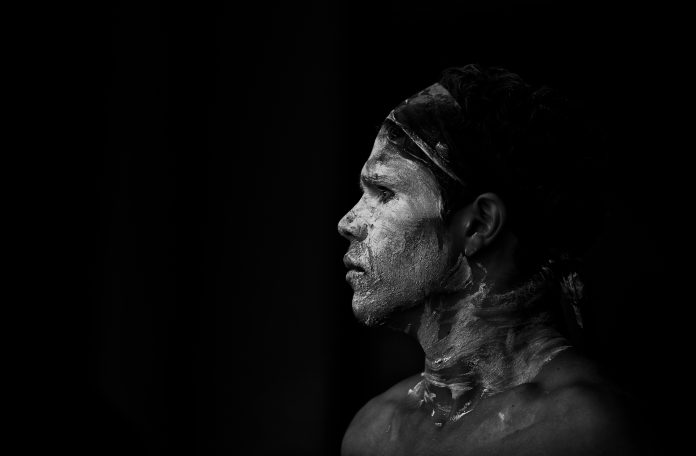Geoffrey Roth, member of the UN Permanent Forum on Indigenous Issues, highlights the mental health crisis faced by Indigenous Peoples. He advocates for a holistic approach to health that connects mental wellbeing with cultural identity, community governance, and environmental health, as emphasized in the UN Declaration on the Rights of Indigenous Peoples
Indigenous Peoples globally have been facing a mental health and addictions crisis for decades due to ongoing colonialism, systemic exclusion, and deep disruptions to land, culture, and spirituality. An epidemic turned into a chronic state due to negligence and oblivion. Conventional systems continue to treat mental health and addiction as isolated problems, focusing on symptoms or behaviors rather than the broader, structural roots.
A comprehensive shift is possible if we embrace the Indigenous Determinants of Health (IDH) as a holistic approach to Indigenous health. Grounded in the United Nations Declaration on the Rights of Indigenous Peoples (UNDRIP) and its principle of Free, Prior and Informed Consent (FPIC), the United Nations Permanent Forum on Indigenous Issues’ (UNPFII) studies on Indigenous Determinants of Health comprise a culturally safe framework that positions mental wellbeing within the broader tapestry of ancestral knowledge, cultural identity, community governance, and environmental health.
As stated in the UNPFII’s 2023 report, Indigenous Determinants of Health in the 2030 Agenda for Sustainable Development (Condo, F. McGlade, H. Roth, G., 2023), makes clear that mental health is not a siloed concern – it is deeply interdependent with every other domain of life. In Indigenous worldviews, mind, body, spirit, and land are interconnected; balance in one is inseparable from balance in all. The report identifies risk factors contributing to poor mental health among Indigenous Peoples, including:
- Ongoing colonial trauma
- Suppression and oppression by substances
- Cultural genocide
- Institutional pathologizing of Indigenous Peoples
- Environmental degradation
- Structural poverty
- Racism and stigma
- Intergenerational trauma
- Disruption of extended family and kinship structures
These factors are not circumstantial but the cumulative impact of intentional state and institutional policies. Research supports this: mental health disparities are shaped by structural inequalities and cannot be resolved through clinical interventions alone.
Protective factors for Indigenous mental health identified by the Indigenous Determinants of Health Framework include:
- Spirituality and ceremonial practices
- Language and oral traditions
- Land-based practices
- Strong kinship systems
- Self-determination
- Access to traditional medicines
- Decriminalization of traditional midwifery
Addictions and institutional harm: Systems that control, not heal
Addiction in Indigenous communities stems from trauma, not individual failure. Historically, substances like alcohol were weaponized to destabilize Indigenous societies. Today, punitive systems criminalize substance use and impose biomedical models without acknowledging cultural context. Mainstream treatment often ignores root causes and imposes narrow definitions of care. Services can dismiss spiritual healing, overmedicate, and exclude traditional practitioners, contributing to alienation and harm. Healing must reclaim relationships with self, spirit, and land.
Rights-based transformation: UNDRIP, FPIC, and IDH guidance in evaluation
The United Nations Declaration on the Rights of Indigenous Peoples (UNDRIP) affirms Indigenous Peoples’ rights to traditional medicine (Article 24), spiritual practice (Article 12), and self-determined health governance (Article 23) (United Nations, 2007).
The UNPFII’s Indigenous Determinants of Health 2024 report, ‘Improving the health and wellness of Indigenous Peoples globally: Operationalization of Indigenous determinants of health’ (Roth, 2024) emphasizes that the Free, Prior Informed Consent principle (FPIC) must be central to all health interventions, ensuring Indigenous Peoples co-create, not merely receive, services.
Moreover, UNPFII’s Indigenous Determinants of Health 2025 study, ‘Evaluating institutional structures to improve the health and wellness of Indigenous Peoples globally: the Indigenous determinants of health measurement instrument’ (Roth, 2025), includes an instrument designed to assess how effectively institutional policies address the unique risks and protective factors affecting Indigenous communities. Together, the three Indigenous Determinants of Health studies should be embraced to effectively address Mental Health and Addictions among Indigenous communities in an accountable manner, including guidance on how to:
- Align national policy with UNDRIP
- Support traditional healers and midwives
- Protect spiritual and ceremonial access
- Uphold data sovereignty and accountability
Global institutions must integrate the IDH framework. For instance:
- At CBD COP17, affirm Indigenous land as health infrastructure
- At UNFCCC COP30, recognize climate trauma as a mental health issue
- At the WHO 2025 Traditional Medicine Summit, elevate Indigenous knowledge as core to global health
Indigenous mental health: Central to resurgence
Indigenous mental health is not a peripheral issue – it is central to the survival, dignity, and resurgence of Indigenous Peoples. True healing cannot come from systems that continue to deny cultural knowledge, spiritual sovereignty, or political agency. It emerges through the restoration of language, ceremony, kinship, land-based living, and governance grounded in self-determination.
Call to action
As we call on states, multilateral institutions, and global health bodies to transform their systems in alignment with UNDRIP and the Indigenous Determinants of Health (IDH), we encourage Indigenous community leaders to make use of the IDH framework as a tool for advocacy, negotiation, and policy design. Whether engaging with local governments, national ministries, or international bodies, the IDH provides a non-prescriptive, culturally grounded, rights-based foundation to advance mental health policies and initiatives that reflect Indigenous values, traditions, and futures. The path to restoring balance begins with reclaiming what was always ours: The knowledge, authority, and responsibility to define health and healing on our own terms.
References
- Condo, F., McGlade, H., Roth, G. (2023) Indigenous determinants of health in the 2030 Agenda for Sustainable Development: Note by the Secretariat (E/C.19/2023/5). United Nations Economic and Social Council. https://docs.un.org/E/C.19/2023/5
- Roth, G. (2024). Improving the health and wellness of Indigenous Peoples globally: Operationalization of Indigenous determinants of health. Note by the Secretariat (E/C.19/2024/5). United Nations Economic and Social Council. https://docs.un.org/en/E/C.19/2024/5
- Roth, G. (2025). Evaluating institutional structures to improve the health and wellness of Indigenous Peoples globally: the Indigenous determinants of health measurement instrument. Note by the Secretariat (E/C.19/2025/5). United Nations Economic and Social Council. https://docs.un.org/en/E/C.19/2025/5
- United Nations. (2007). United Nations Declaration on the Rights of Indigenous Peoples. General Assembly resolution 61/295. https://www.un.org/development/desa/indigenouspeoples/declaration-on-the-rights-of-indigenous-peoples.html











